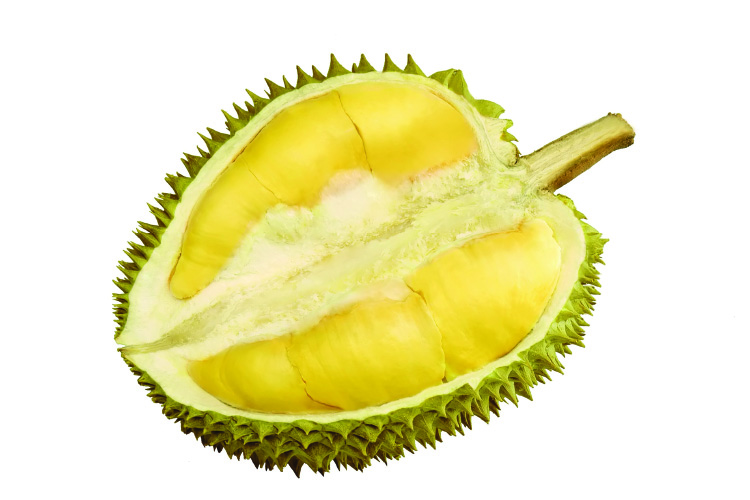Durian: The King of Fruits
Nothing comes close to durian for its look and distinguished smell. The scent of this thory fruit can be penetrating, a welcome aromatic smell for its fans but an equal turn-off for others – the same reason durian is banned from many public areas. Nevertheless, durian is a highly valued fruit in Southeast Asian countries; some even paying exorbitant prices for high-grade varieties. The durian belongs to the genus Durio, family of Malvaceae; a large family of plant species which also include hibiscus, okra etc. It is botanically known as Durio zibethinus.
- Contains high levels of tryptophan, an amino acid known to alleviate anxiety, depression, and insomnia, and create feelings of happiness, by raising levels of serotonin in the brain
- Has high B-complex groups of vitamins; such as niacin, riboflavin, pantothenic acid (vitamin B5), pyridoxine (vitamin B-6) and thiamin (vitamin B-1) – rare feature among fruits
- A good source of copper which plays a role in thyroid metabolism, especially in hormone production and absorption
- Has high calories and fibre but no cholesterol
- Said to be a powerful aphrodisiac
- Durian is also rich in potassium – a key nutrient for healthy bones
- A strong blood cleanser
- Durian is rich in vitamin C, E, carbohydrates, fats, proteins, as well as magnesium
- A good source of folate, also called vitamin B9, needed for the production of normal red blood cells
- Its high iron content helps white blood cells in our body make specific chemicals that kill-off yeast infection
- Rich in manganese which aids in regulating blood sugar level
- The durian have been compared to the goji berry for its high levels of anti-oxidants
















